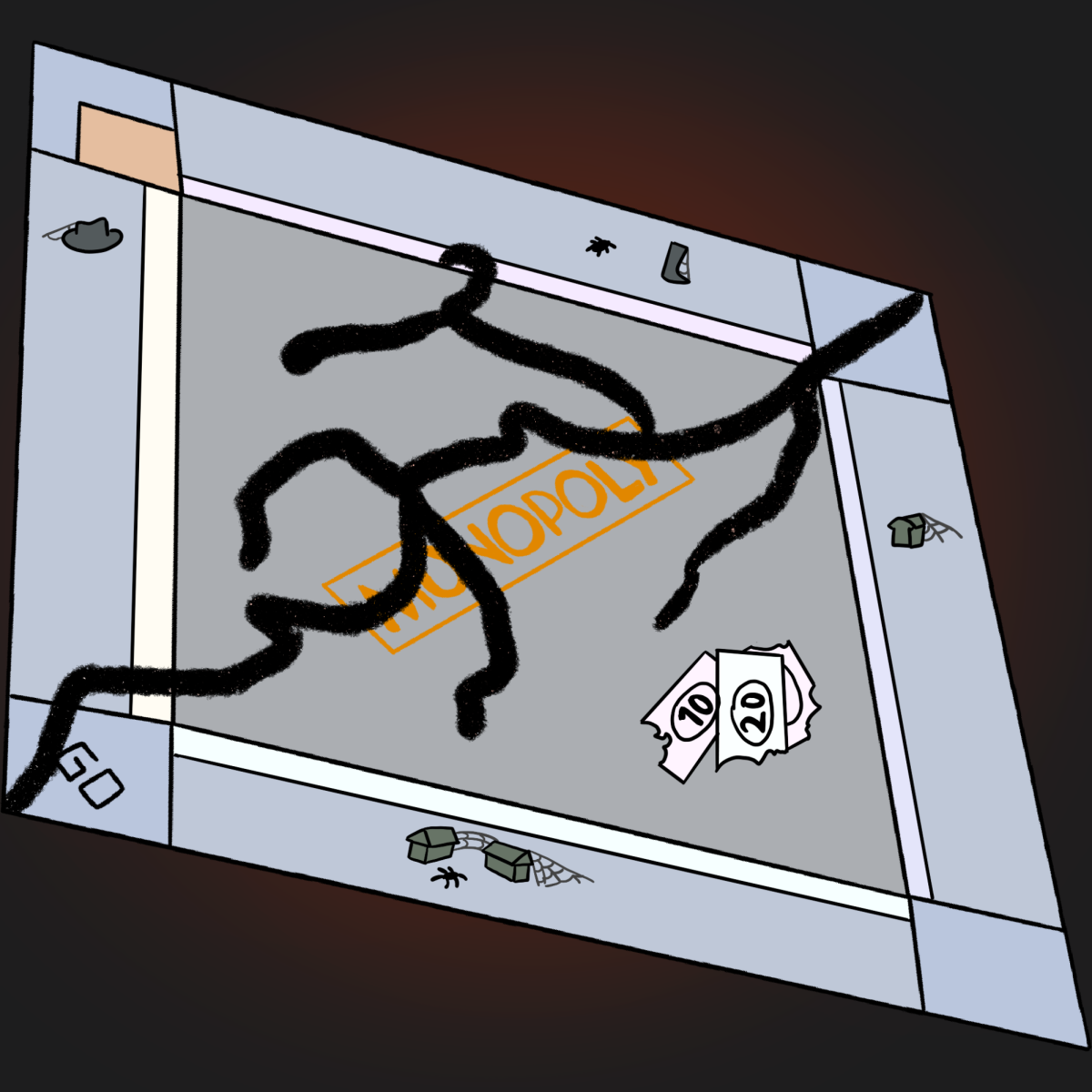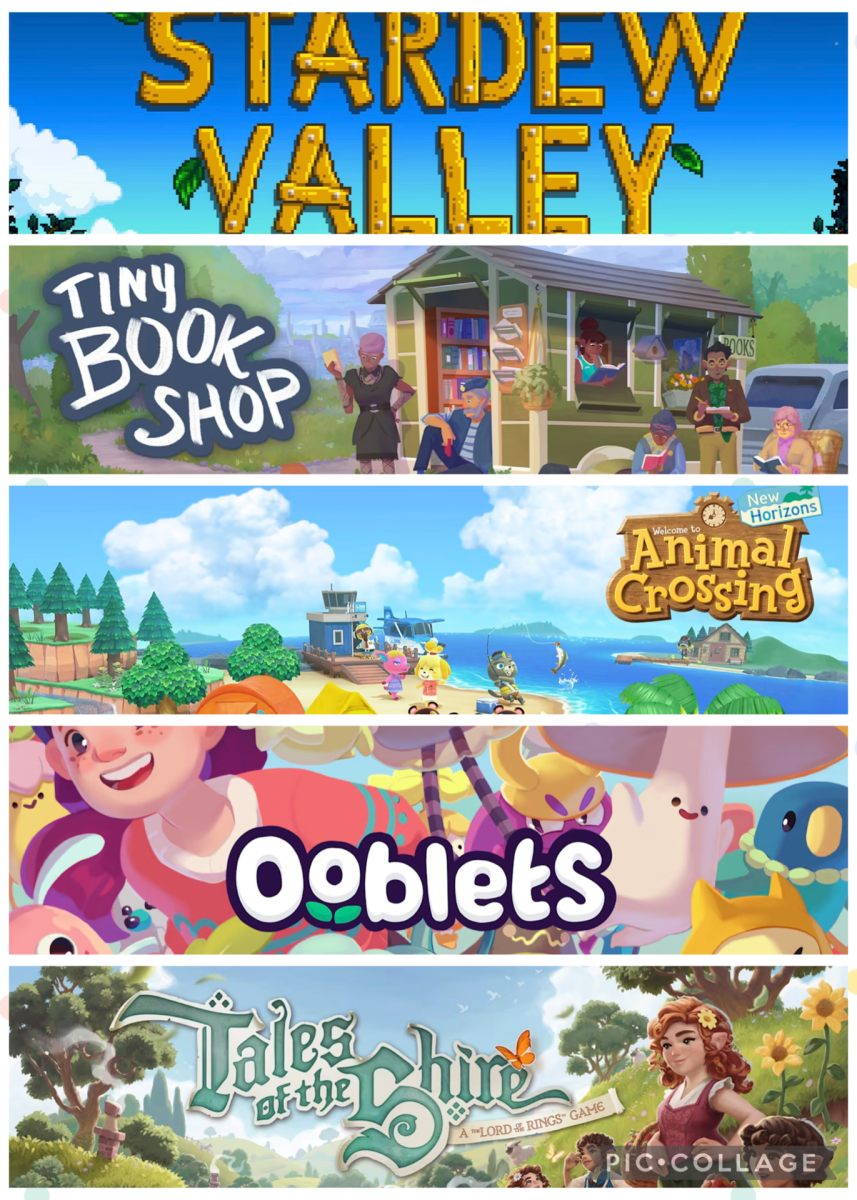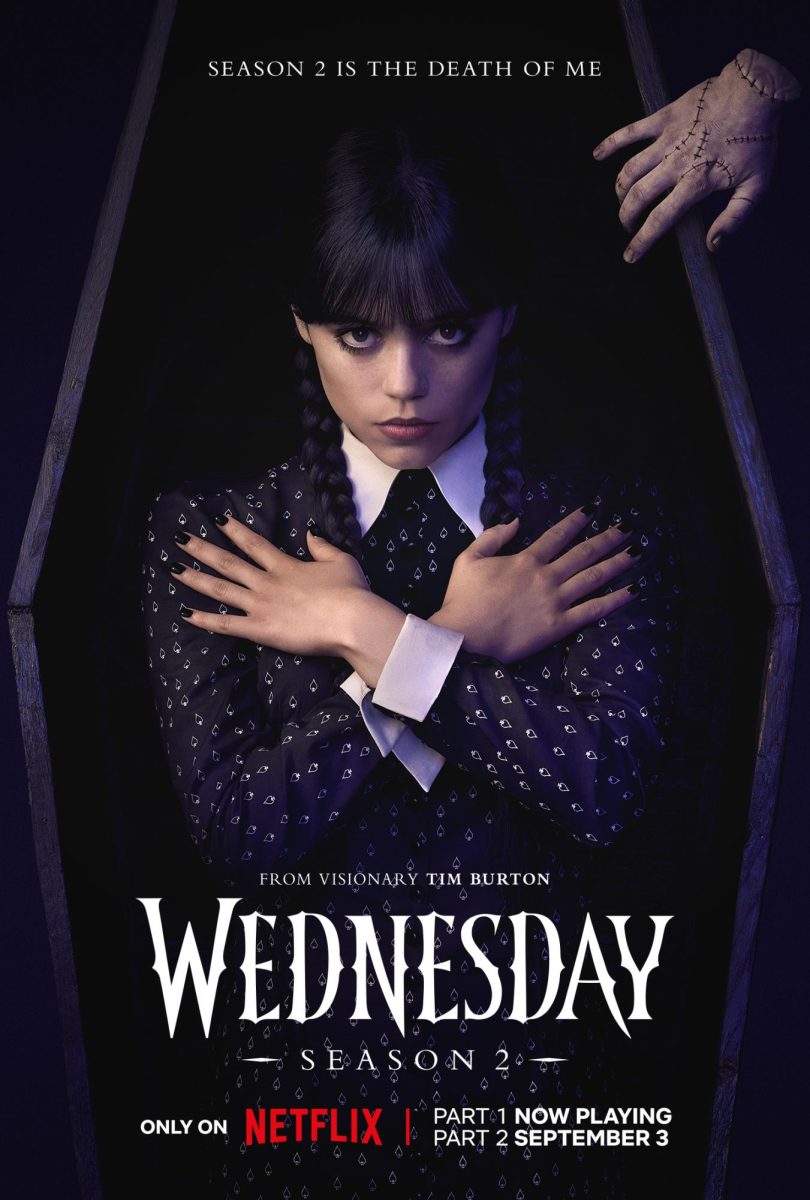My family has never been a “Monopoly” family — the kind of family that could spend hours sitting crisscrossed on the floor of their living room, huddled over a colorful 60-inch square board. As a kid, I would sometimes ask to play the game, but the answer always began like “Monopoly takes too long.”
So, I adapted a similar attitude whenever my friends would ask to play. I would act uninterested, bored or even snobby. That is, until my best friend introduced me to Monopoly Deal. One evening when I was lazing around at her house, she pulled out what seemed like a deck of cards. But, to my surprise, she explained it was actually Monopoly’s cooler older sister. Suspicious but intrigued, I agreed to play one round. And my life changed.
I finally understood why people enjoyed playing Monopoly. Monopoly Deal, a unique version of the original board game, was just as much fun but way quicker. It employed all of the game’s original nuances, some additional rules and did not take as long to set up or to play.
Finding a board game, or rather a non-electronic game that I truly enjoyed, led me to ponder the consequences of the decline of board games.
According to ICv2, hobby board and card games in the U.S. saw about a 10% drop in sales in 2023. This is partly because the lockdown’s surge in board/card game sales, resulting from an increase in boredom and time at home, has faded in our post-COVID-19 reality. Additionally, the market is oversaturated as there is a variety of games available, which makes it difficult for a singular game to stand out.
For one, I recognized that board games taught children important social skills such as waiting, sharing, problem-solving, and compromise. In Monopoly Deal, players need to let go of cards when the rules deem it necessary, act strategically with their Action cards and make peace with losing less important cards to keep their larger advantages.
While these skills are essential to games, they are definitely important life skills. We often find ourselves struggling to remain patient while in line at a restaurant, making difficult decisions, and meeting someone else halfway. Though it’s commonly understood that the more one does something, the better they are at it. In this manner, board games act as a cornerstone of a child’s emotional development.
Research also shows that board games challenge the cognitive functions of children, especially their math and logic skills. Developing these dominant aspects of personality is incredibly relevant to the mental fortitude of young children. Instilling these skills in children at a young age will only help as they grow older.
Yet, the most obvious benefit to board games is that they allow for screen-free fun. In today’s digital age, where anything fun seems to revolve around an electronic device, it’s important to have beneficial entertainment options that do not involve the sly tablets. However, it seems that we as a society still gravitate towards our screens due to online games.
So, how can we strike a balance?
Well, for one, we can begin by admitting that board games are not only for kids; an individual of any age can have an enjoyable time with a board game of some sort. By thinking of these activities as “kids games,” we further box ourselves into a rigid social construct that requires us to dismiss enjoyable recreation. So, let’s get off our high horses and pick up a board game the next time we’re bored.
And here are some options for your convenience.
In Catan, a game of colonization, building infrastructure and strategic trading, players take over an island to earn 10 victory points (received through development cards, building and other bonuses). The game is simple to pick up, but can easily become nuanced and more strategic. And, the best part is that you are constantly interacting with other players to trade and negotiate, making it fun for all.
Telestrations, a blend of Pictionary and Telephone, offers an enjoyable experience guessing words through miscommunication. Each player gets a specific word, depicts it in their sketchbook and passes it to the next player for them to guess what was drawn, and so on until the reveal. This game always creates laughter, and artistic skill isn’t a prerequisite for a successful game.








